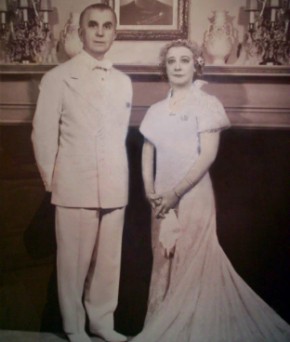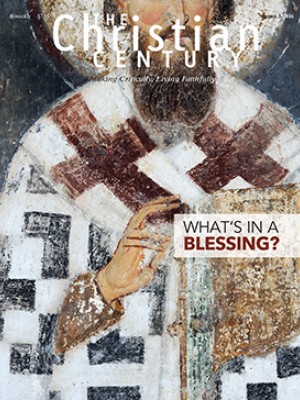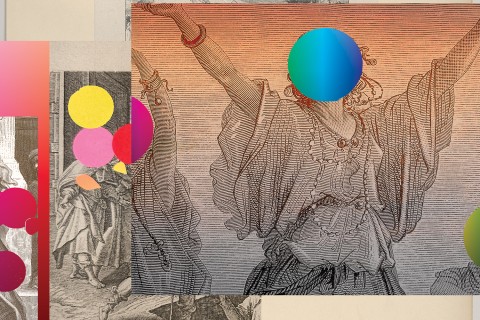When does faith become fraudulent?

Should truth in advertising laws apply to religious claims? Should governments be in the business of defining authentic miracles? Which pastors are genuine, and which are fakes?
However fanciful such questions might seem, all these issues are very much alive in contemporary Africa. The Christian upsurge of the past half century has been marked by widespread claims of healing and miracles, often in the context of charismatic revivals and crusades. As in any such great awakening since apostolic times, a number of wild and bizarre claims have been made, and there is some evidence of active fraud. Every society has its own versions of Elmer Gantry, people who use religious deception as a money-making tool. The question then arises of who is meant to regulate or suppress such outbreaks.
One early attempt occurred in Nigeria in 2004, when the National Broadcasting Commission tried to prohibit anyone from showing “unverifiable” miracle healings on television.
The problem with that rule was obvious: What would constitute verification or proof of a miracle? The regulation was withdrawn. But similar efforts have been made, usually following a media exposé of some egregious piece of trickery. In South Africa, one small church was banned from making advertisements that showed discarded canes and crutches. Just last year, several Nigerians were arrested on the charge of being fake pastors running a fraudulent church offering deceptive miracles.
Read our latest issue or browse back issues.
As in the 2004 broadcasting controversy, it remains difficult to decide exactly who and what is “fake” and “fraudulent.” That issue would be thorny enough anywhere, but contemporary Africa is a world of upstart churches experiencing mushroom growth, and a great many men and women see themselves as spiritually called or even as prophetic figures, although they lack formal qualifications. So who is to say which churches or pastors are authentic and which are not?
Attempts to regulate religious behavior run the risk of interfering with religious freedom, and recent events in Kenya have powerfully reinforced the slippery-slope argument. The nation faces religious challenges on two fronts, with mosques being accused of radicalizing young people and churches being charged with deceptive miracles. A documentary on “prayer predators” was particularly explosive.
In response, the Kenyan government offered a draconian code of Religious Societies Rules (2015). Among its requirements, all religious bodies were to register with the government and keep records on their followers. All clergy were also required to hold formal qualifications, such as degrees in theology—in a world in which even the ministers of long-established denominations lack such credentials. If a degree is essential to the making of a true pastor, then some of Africa’s most renowned spiritual figures stand in grave danger.
The rules provoked a backlash from churches great and small, with the Catholic Church in the vanguard. They objected to the prospect of becoming agents of government, and they also highlighted an issue that might not be immediately apparent to non-Africans. At a time when churches are adding so many members daily, how can they be expected to keep their membership rolls up to date? In the face of widespread protests, the government suspended the rules. It is virtually certain, though, that comparable legal battles lie ahead in other countries.
This is one area in which African countries could learn from American experience. In the 1930s, the United States was home to a potent movement called I AM, led by Guy and Edna Ballard. I AM ran a spectacular money-making operation based on outrageous and increasingly ludicrous claims. (Anyone for a portrait of Jesus that he actually sat for?) The group was prosecuted for fraudulently collecting donations on the basis of religious claims that the defendants themselves did not believe.
The case of United States v. Ballard (1944) ended up in the Supreme Court, where it remains a mainstay of the case law on religious liberty. The court voided the conviction on the grounds that it was wrong ever to have asked whether the Ballards themselves actually believed what they preached.
In a memorable dissent, Justice Robert Jackson went considerably further. While he thought the Ballards taught “humbug,” he said that issue “does not dispose of the constitutional question whether misrepresentation of religious experience or belief is prosecutable.” Cults like I AM could do financial harm to “overcredulous people” who sometimes received “mental and spiritual poison” in consequence, but “the price of freedom of religion or of speech or of the press is that we must put up with . . . a good deal of rubbish.” And if you were to demand that clergy actually believed what they officially taught, then plenty of orthodox and mainline pastors ran the risk of prosecution.
In conclusion, he said, “I would . . . have done with this business of judicially examining other people’s faiths.” Those are words to live by.






